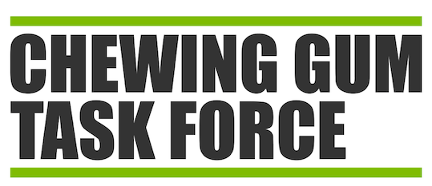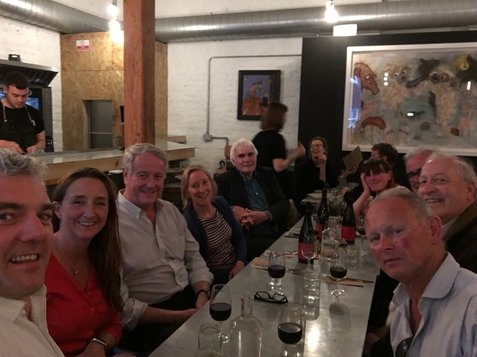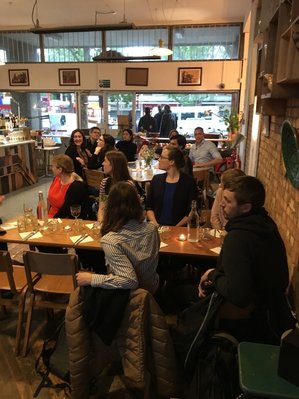 Chewing gum stains on our high streets will be tackled through a brand new fund that launches in May. To find out more, click CGTF The Chewing Gum Task Force Grant Scheme is open to councils across the UK who wish to clean the gum off the pavements in their local areas and invest in long-term behaviour change to prevent gum from being dropped in the first place. In the first year of the scheme, more than £1.7 million has been invested by chewing gum producers. SOENECS are very proud to be supporting Keep Britain Tidy and the Taskforce with project managment. Chewing gum litter stains the streets throughout our towns and cities, reaching up to 87% of the streets in England and wasting millions of pounds of taxpayers’ money in clean-up costs every year. Allison Ogden-Newton OBE, Chief Executive of Keep Britain Tidy, said: “This is an exciting new opportunity for councils to tackle the ongoing problem of gum pollution. The grants will allow councils to clean up historic gum litter staining in our towns and cities, as well as taking action to prevent people littering in the first place.” The Chewing Gum Task Force brings together some of the country’s major chewing gum producers, including Mars Wrigley and Perfetti Van Melle, as well as some producers of nicotine replacement therapy gum. Under the scheme, administered by independent environmental charity Keep Britain Tidy, the firms will invest up to £10 million over five years to help reduce chewing gum pollution. Grants of up to £20,000 are available to individual councils in England, Northern Ireland, Scotland and Wales to fund street cleansing and/or the purchase of cleaning equipment. Larger grants of up to £70,000 are available for two or more councils working together to achieve greater impact. Councils will also benefit from a bespoke gum litter prevention package, including targeted behaviour change signage and advice to encourage people to bin their gum. Previous pilots run by Mars Wrigley and Behaviour Change using this signage have reduced gum littering by up to 64%. The fund is now open to Expressions of Interest below, where councils can also find all the information they will need to apply. Formal applications will be welcomed in a two week window between Monday 9 and Monday 23 May 2022, and decisions will be announced by the end of May 2022. Keep Britain Tidy will be hosting a webinar on Tuesday 26 April 2022 at 10am where councils can learn more about the fund and how to apply. Please express your interest below to register.
0 Comments
 The pioneering Pothole-spotter trial has secured a prestigious industry award which recognises its ‘great potential’ in dealing with these highly visible road defects. The project, led by the Department for Transport (DfT), in partnership with Thurrock, York and Wiltshire councils and delivered by private-sector SMEs, Gaist and SOENECS, was named winner of the ‘Best Use of New Technology’ category at the Highways Awards 2017. The judges said the project provided “high quality and frequently refreshed information on potholes across networks providing great potential for development.” Dr David Greenfield, managing director of SOENECS and Research lead for Pothole-spotter, said: “We are thrilled that the innovation and hard work that has gone into this project has been recognised with such a prestigious award. “It is a great achievement for a project that is still in the trial stage.” The Pothole-spotter project and its learning will revolutionise the way councils undertake highways maintenance and how potholes and other road defects are identified and managed, reducing their number and paving the way for a high-performing local highway network fit for all road users. On behalf of the councils involved, Parvis Khansari, Director of Highways and Transport for Wiltshire Council, said: “It is great to be part of a project that I am convinced will deliver a step change in the way we manage highways maintenance.” Launched in January, the system uses high-definition cameras, mounted to refuse collection vehicles (RCVs), buses and bikes to capture regular, detailed images of the same sections of the highways network. This rich data is analysed using intelligent software and the findings will be used to deepen councils’ understanding of how roads deteriorate. It will enable them to develop a long-term strategy for more effectively predicting and preventing potholes and other highways defects. Dr Stephen Remde, Director of Innovation and Research at Gaist Solutions, said: “Not only will this imagery provide the councils involved with a near real-time understanding of how their networks are deteriorating, but it will provide data that could help to answer some important questions about highways maintenance.” The key aims of the project are:
The Department for Transport will consider how the use of the technology can provide authorities and other organisations with more real-time information to help identify a wider array of important features and possible issues, including cracks and other defects, signage, vegetation, debris and other characteristics. This will help inform planned long-term investments in road and other local highway infrastructure. The DfT will also examine how the use of this new technology - and making better use of data - can help create smarter environments to assist mobility, increase local economic opportunity and address local challenges. For more information about the Pothole-spotter project, see www.pothole-spotter.co.uk or email: [email protected] or [email protected] Follow us on Twitter: @potholesspotter  We were hosted at the wonderful Silo resturant for our first change of venue for six months. The food was wonderful, with the usual choice of vegtable, meat or fish options. Our tastebuds were overwhelmed, amongst other ingredients, by a mixture of asparagas, bream, mushrooms, goats cheese and Sea Buckthorn. The debate as usual was lively, but rather more 1-1 discussions that group dicussions, partly due to the accustics and partly due to other diners being in the resturant. Overall, a great night, with three new members in attendance. Our next dinner club will be our 1 year anniversary, look out for it! David. Launch of the Circular Economy Dinner Club 04.05.17
|
News
edited by Archives
April 2022
Categories© SOENECS Ltd 2022
|




 RSS Feed
RSS Feed
